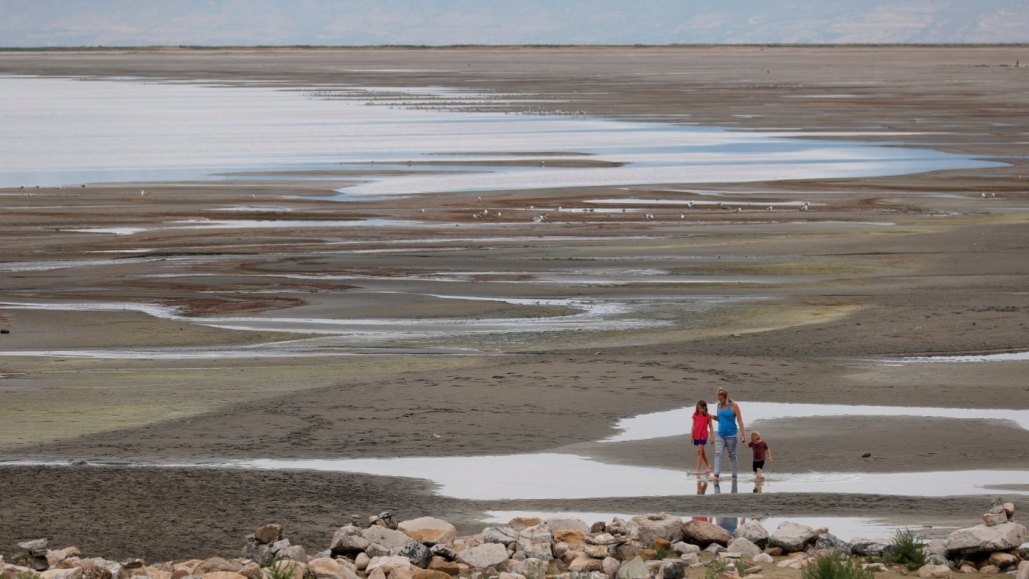Reactive dust from Great Salt Lake may have health consequences
When inhaled, metals left by the shrinking lake could cause inflammation

As the Great Salt Lake shrinks, it leaves behind dust with a higher oxidative potential, a measure of reactivity, than dust from other nearby lakes.
Justin Sullivan/Getty Images News